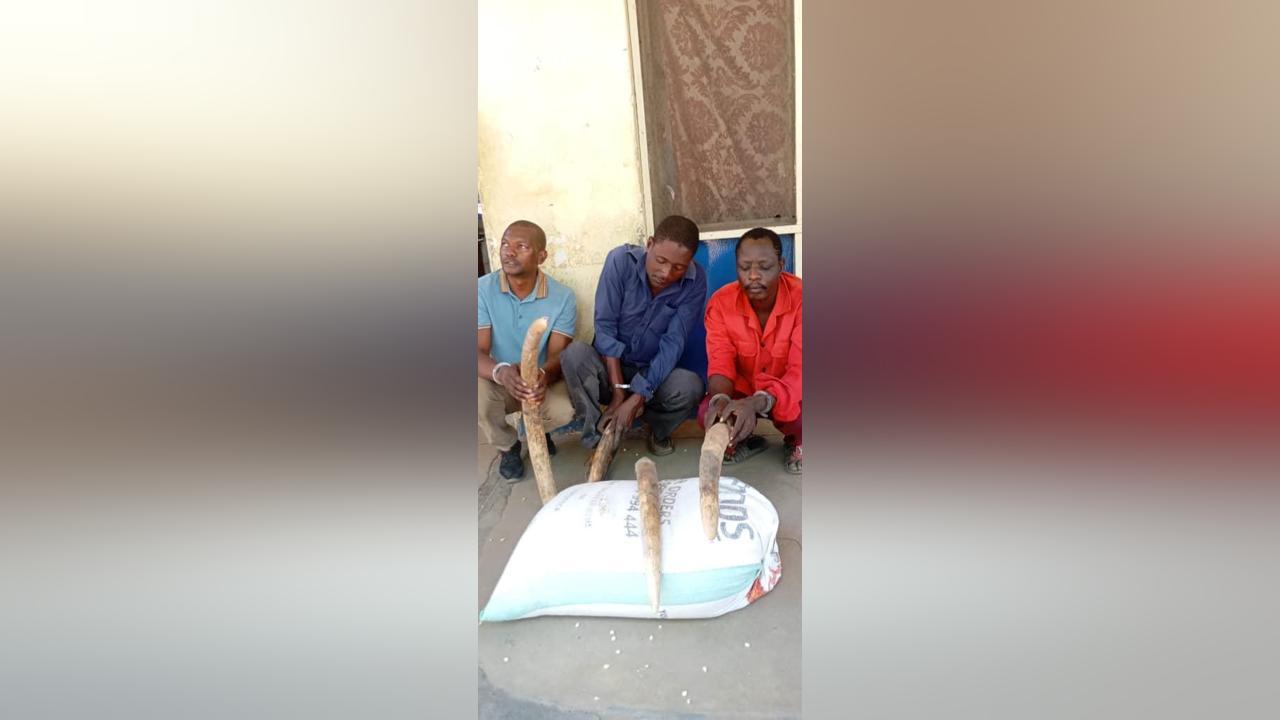Africa-Press – Malawi. Three men including a Human Resources Manager for a a Chinese owned orphanage, Amitofo Care Centre , will on Tuesday re-appear before the Senior Resident Magistrate’s Court sitting at Chikwawa after being found in possession of four pieces of raw elephant ivory without a licence or certificate of ownership.
Hearing of the case failed to comence on Friday because because some of the prosecution team members were engaged.
According to a police and court documents, the suspects — Brandson Njunga, the senior official for Amitofo aged 44, of Kaphelana village, Mwanza; Steven Kamfosi (45), of Kanyoza, Chikwawa; and Tobias Kandiado (27), of Ndakwera, Chikwawa — were arrested in Chikhambi village, Chikwawa, on or about the 20th of September.
The trio, currently on bail, face charges under Section 86(1), read with Section 110B(b) of the National Parks and Wildlife Act, Cap 66:07 of the Laws of Malawi. The offence carries stiff penalties, including custodial sentences, for possession of specimens of listed species without valid documentation.
Public tip-off leads to arrests
Police in Chikwawa say they acted on a public tip-off that the men were attempting to trade the ivory locally.
“A subsequent raid led to the seizure of the pieces and the suspects’ arrest. Community cooperation was crucial in intercepting the contraband before it could be trafficked further.
“Community vigilance remains vital in protecting Malawi’s endangered species,” said a law enforcement officer familiar with the case, speaking on condition of anonymity.
The suspects were formally charged and summoned on 23 September, with the case registered as Case No. 611 of 2025.
The involved of the Blantyre based Amitofo Care Centre’s senior official comes against a background of a similar case involving the organisation’s orphan graduate Aaron Dyson, who is serving a 15 year prison sentence at Zomba Maximum prison for his involvement in illegal wildlife activities by a Chinese wildlife convict Yunhua Lin.
The organisation’s authorities are yet to comment on the development.
Enforcement signal — or small drop in a bigger stream?
While the seizure involves just four pieces of ivory, conservationists say even “small” cases are significant. Elephant populations across southern Africa remain under pressure from poaching, and Malawi has been identified in international reports as a transit country for wildlife trafficking.
Dr. Martha Zimba, a Lilongwe-based conservation advocate, told the media
“Every ivory piece represents a dead elephant. Whether it is one kilogram or one tonne, the law must treat possession seriously. Otherwise, traffickers will exploit loopholes and rural networks to keep the trade alive.”
The wider context — pardons, politics, and public confidence
This arrest comes at a sensitive time.
Few months ago, the just ousted President Lazarus Chakwera was criticised for pardoning two Chinese nationals previously convicted of wildlife trafficking. Civil society groups described the pardons as a “betrayal” of conservation efforts.
That controversy raised public doubts about the government’s consistency in fighting wildlife crime. Critics warned that if offenders believe high-level political decisions can override court sentences, deterrence collapses.
Against that backdrop, all eyes will be on how the Chikwawa ivory case is handled — from trial to sentencing.
Deterrence and community impact
The National Parks and Wildlife Act, strengthened in 2017, prescribes penalties of up to 30 years imprisonment for serious wildlife crimes. Yet conviction rates remain inconsistent, and case backlogs are common.
For local communities in Chikwawa — where poverty is acute and poachers often recruit “foot soldiers” — such prosecutions can send a message that ivory trafficking is not worth the risk.
Village leaders interviewed near Chikhambi told the media that wildlife crimes often stem from a combination of poverty and organised syndicate influence. One said:
“Our young men are tempted with quick money. But when they are caught, it is the community that suffers the shame. We hope the courts will be firm.”
What happens next?
The suspects are expected to take plea from Tuesday. If convicted, they could face substantial custodial sentences.
” Conservation groups will watch closely to see whether the prosecution presents robust evidence, and whether the court process moves swiftly or suffers from delays,” said a prominent conversationalist asked for anonymity as the case is in court.
He argued that the case could become a test for how Malawi enforces its wildlife laws at the rural level.
“The country has been praised for strengthening its legislation but criticised for weak enforcement and selective justice.
But the questions to watch now are that will the court deliver a strong deterrent sentence if guilt is proven? Or will the case stall, be downgraded, or end with leniency — as past cases have?” he questioned.
Conclusion
For now, the Chikwawa ivory seizure may look small. But the stakes are big. Every successful prosecution strengthens Malawi’s conservation record as the conservationist put it:
“This is not just about four pieces of ivory. It is about whether Malawi is serious about closing the rural supply chains that feed the global wildlife trade.”
For More News And Analysis About Malawi Follow Africa-Press






